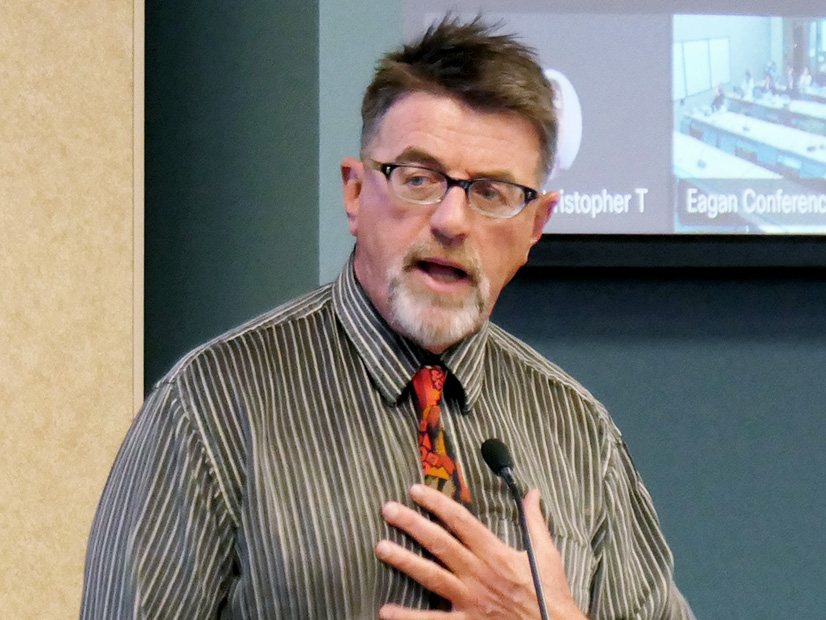CARMEL, Ind. — MISO’s Market Subcommittee will assist MISO in drafting tariff requirements to discourage market participants from committing fraud in MISO’s demand response market.
At a July 9 Market Subcommittee meeting, MISO principal market design adviser Michael Robinson presented draft rewording and additional paragraphs in its tariff to “address inappropriate behavior by certain market participants.”
Robinson said MISO is taking suggestions from stakeholders on how it can tweak its tariff redlines to best deter fraudulent demand response. The grid operator hopes to have rules ready to file with FERC at the end of the year.
Over the past two years, FERC staff have caught three companies manipulating MISO’s demand response market and collecting unjustified payments. The commission found that an air separation facility in Indiana accepted payments for phantom load reductions, an Arkansas steel mill engaged in a yearslong failure to reduce electricity use, and an obscure, Texas-based LLC formed to sell in-car ketchup holders fraudulently enrolled customers and made faux DR offers in three capacity auctions. (See FERC Catches Ketchup Caddy Co. in Another Fake DR Scheme in MISO.)
Robinson said MISO plans to shut down avenues for demand response resources to be paid for artificial curtailments or over-collect when they deliberately inflate their baseline electricity use to exaggerate reductions. Likewise, MISO wants to make it more difficult for companies to enter fraudulent registrations, where unwitting end-use customers are entered into DR contracts without their consent.
Robinson referenced Baltimore’s Camden Yards DR scandal a decade ago, where management would turn the baseball stadium’s lights on when the Orioles weren’t playing to ratchet up baseline use and make cuts to load look more dramatic. He also said MISO’s now-infamous Ketchup Caddy episode falls under the fraudulent registration category.
MISO is vetting draft tariff language with stakeholders that would have demand response resources providing proof of contracts and hourly meter data and making executive attestations to their reductions.
MISO also is considering screening DR offer parameters to ensure they are consistent with a resource’s ability and setting specifications on how and when DR resource testing must occur to weed out baseline manipulation. It’s also mulling excluding reduction hours from baseline use calculations, rather than excluding the entire days when reductions occur.
MISO’s Neil Shah said the new requirements are motivated by the recent demand response deceptions that FERC staff have uncovered.
Michigan Public Power Agency’s Tom Weeks asked if MISO also is working in more examination and auditing of companies that register for demand response participation but could appear suspicious.
Robinson confirmed MISO is working on bolstering its screening process and is in discussions with the Independent Market Monitor about how to best detect sham DR.




